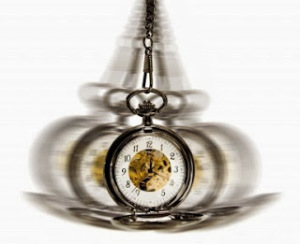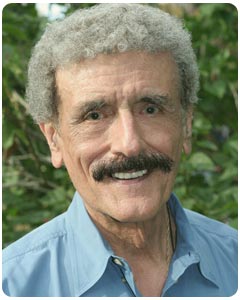 Forensic hypnosis is the use of hypnotherapy in the field of law enforcement. It’s often used to help witnesses recall details of events and descriptions of suspects that can’t be extracted through conventional interviewing techniques.
Forensic hypnosis is the use of hypnotherapy in the field of law enforcement. It’s often used to help witnesses recall details of events and descriptions of suspects that can’t be extracted through conventional interviewing techniques.
In my police career, I’ve been involved in a number of cases where we used hypnotic memory enhancement. Several had amazing success.
I’ve always been fascinated with how the human mind works. I think that modern medicine and psychiatry are just beginning to understand the complexity of how consciousness works. Hypnosis is a tool to assist in entering a person’s subconscious and unlocking the vault where memory is stored. Its ‘magic’ is the ability to alter the subject’s state of consciousness which is what Shamanism is all about. But that’s for another discussion.
The best hypnotherapist I’ve had the pleasure to work with is Dr. Lee Pulos of Vancouver, BC, Canada. Here’s how he explains it.
“Hypnosis is a natural state of consciousness that we drift in and out of quite regularly. For example, while driving along a highway and then suddenly discovering that you ‘lost’ several miles without being aware of it. This can also happen during reading when you may notice that you have ‘read’ a chapter or two without being mindful of the content. Hypnosis is basically a technique for focusing consciousness by entering a deep state of absorption. It allows you to shift from your outer to inner awareness and tap deeper levels of consciousness, so that we can re-educate and reprogram the subconscious with empowering suggestions or beliefs.”
The word “hypnosis” comes from the name of a Greek god Hypnos, who presided over sleep. In the late1700s, Anton Mesmer brought the technique into popular consciousness in Europe and in 1843 Scottish physician James Braid coined the term, “hypnotism,” for the experience that was passing in many circles as “animal magnetism.”
Hypnosis places a person in a trance state that can resemble sleep, but is instead an altered state of consciousness more akin to a lucid dream. Often people in a trance are quite alert, but focused in a way that differs from their normal conscious state. Contrary to popular notions, subjects in a light trance may be aware of everything that is going on.
I’ve seen a rough and tough biker-witness under hypnosis who was instructed to play ‘patty-cake’ by clapping his hands on his knees. He couldn’t stop laughing at the fact that he couldn’t control his hands, though he seemed perfectly conscious in a way that ought to have enabled him to resist the instruction. His hands changed to patting his head and stomach at the hypnotist’s instruction. They looked at each other the whole time and even had a conversation with his hands patting about.
The trance-state, which has its own ebb and flow, is the result of a trusting and cooperative process between the subject and the hypnotist. It’s not one person controlling another and there’s no way the hypnotist can make the subject do something they would not do while they’re in a normal state, such as an illegal or immoral act.
 “Hypnosis,” says Kevin McConkey, President of the Australian Psychological Society and co-author of Hypnosis, Memory, and Behavior in Criminal Investigation, “is essentially a phenomenon that reflects genuinely experienced alterations of reality in response to suggestions administered by a hypnotist.” The subject’s testimony is what confirms the trance, although susceptibility varies among individuals. Those who are highly suggestive will behave as if going through truly significant cognitive alterations.
“Hypnosis,” says Kevin McConkey, President of the Australian Psychological Society and co-author of Hypnosis, Memory, and Behavior in Criminal Investigation, “is essentially a phenomenon that reflects genuinely experienced alterations of reality in response to suggestions administered by a hypnotist.” The subject’s testimony is what confirms the trance, although susceptibility varies among individuals. Those who are highly suggestive will behave as if going through truly significant cognitive alterations.
Hypnosis involves concentration that is heightened to the point where one can recall details that seemed to elude that same person in a conscious state. That’s why it appears to be a powerful forensic tool for criminal investigation, although some researchers challenge the notion that hypnosis leads to significant increases in memory.
 There are two basic purposes for using forensic hypnosis. The most common is to induce relaxation when anxiety and stress may be obstructing a witness’ ability to recall as much information as possible. The second use occurs when retrieval of information from witnesses cannot be acquired through any other means.
There are two basic purposes for using forensic hypnosis. The most common is to induce relaxation when anxiety and stress may be obstructing a witness’ ability to recall as much information as possible. The second use occurs when retrieval of information from witnesses cannot be acquired through any other means.
The very first court case to involve forensic hypnosis was Cornell v. Superior Court of San Diego in 1959. Although forensic hypnosis is mostly used by prosecutors, in this particular court case, it was the defense that used hypnosis as an aid in preparing its strategy. Since then, many famous cases have used hypnosis as an aid, including the Boston Strangler, Ted Bundy, and Sam Sheperd.
Currently no overriding judgment has yet been handed down regarding admissibility of evidence achieved through forensic hypnosis and the use of such evidence varies from one jurisdiction to the next. Adding to the reliability problem is that solid evidence can be devalued as a result of unprofessional circumstances surrounding the obtaining of evidence through hypnosis.
 I remember one judge rejecting evidence from a witness who had been subject to hypnotic recall stating “There’s nothing more unreliable than an eyewitness, never mind one who is tainted by hocus-pocus.” One the other hand, I recall another judge who was fascinated by the process and readily accepted the witness evidence, particularly because the information obtained under hypnosis was corroborated by other facts. As in all types of evidence, the key is reliability.
I remember one judge rejecting evidence from a witness who had been subject to hypnotic recall stating “There’s nothing more unreliable than an eyewitness, never mind one who is tainted by hocus-pocus.” One the other hand, I recall another judge who was fascinated by the process and readily accepted the witness evidence, particularly because the information obtained under hypnosis was corroborated by other facts. As in all types of evidence, the key is reliability.
In order to ensure that solid forensic hypnosis used in the investigation of a crime is not devalued, it’s become standard and vital operating procedure that all hypnosis sessions are recorded on video and audio and that the session is witnessed by independent observers. In addition, to further strengthen the case, the hypnosis must be performed by a trained forensic hypnotist.
Before a forensic hypnotist is allowed to begin a session, one very important condition must be met. The subject must be assured that during the hypnotic session no attempt shall be made to elicit any information that is not directly relevant to the investigation. In addition, the forensic hypnotist must also assure the subject that no information retrieved will lead to self-incrimination.
 Critics of forensic hypnotism center their attacks on the accuracy and reliability of the evidence that’s obtained. The concern is that suggestion(s) implanted during hypnotism may create false memories through the use of leading questions.
Critics of forensic hypnotism center their attacks on the accuracy and reliability of the evidence that’s obtained. The concern is that suggestion(s) implanted during hypnotism may create false memories through the use of leading questions.
One thing that a forensic hypnotist cannot do, and is never called to do, is to help a suspect confess to a crime. Not only is this impossible, but any confession arrived at through hypnosis would never be admissible in court.
Here’s a true case that I investigated where forensic hypnosis for memory enhancement led to a break-through in solving the crime. It was conducted by Dr. Lee Pulos.
In April, 1986, a lady was alone in her cabin on a remote gold claim in northern British Columbia. A masked man with a hand gun appeared at her door demanding that she hand over her gold stash. She refused so he proceeded to blindfold and hog-tie her, then began torturing her by burning her hands and ribs with a red-hot knife heated on her wood stove.
Now this lady was one tough old bird, as you’d expect a gold miner to be. She later stated that she’d worked so hard to build her gold stash that she’d ‘rather die than turn it over to this asshole.’ Realizing that his interrogation technique was going nowhere, the bad guy quit in frustration, set the cabin on fire with her still tied and blindfolded, and left her to die. She was able to wiggle over and boot the door, then crawled outside where she laid in excruciating pain on the snow in sub-zero temperature until her husband returned from town and found her.
 Because this was such a horrific crime, the Mounties pulled out all stops. We flew her to Vancouver to undergo hypnosis with Lee Pulos. He was able to extract two things that led to solving the case. One was that she recalled that the bad guy was using a two-way radio or ‘communicator’ as she called it. The second was that he kept using the term for the gold stash as being ‘squirreled away’.
Because this was such a horrific crime, the Mounties pulled out all stops. We flew her to Vancouver to undergo hypnosis with Lee Pulos. He was able to extract two things that led to solving the case. One was that she recalled that the bad guy was using a two-way radio or ‘communicator’ as she called it. The second was that he kept using the term for the gold stash as being ‘squirreled away’.
Now being positive that an accomplice was involved, we focused the investigation on a neighbor who’d been involved with a gold-claim boundary dispute. We identified the suspect as a Hells Angels connection who’d been hired by the neighbour so we ran a wiretap which caught him using the term ‘squirreled away’. This led to an elaborate sting being set-up that resulted in his confession to an undercover agent. He was convicted and got twenty years.



Hi, I would like to request permission to reprint this article. I look forward to hearing from you.
Hi Jennifer – Thanks for contacting me and asking permission to republish the forensic hypnosis piece at DyingWords.net. By all means, please go ahead and do what you’d like with it. I’m just happy to hear you found it and feel it has value for your audience. If you’d like to link it back to the original post, that’d be appreciated 🙂 ~Garry
If as a child of 12 years old, someone saw the face of a potential miscriant, could that child describe that face 40 years later through hypnosis?
Good question, Alan. I really don’t know.
Should I bother going to police to ask? It’s still an open case, all be it a cold one. I just don’t want to get the family’s hopes up that I can help.
Perhaps I should just forget about it? I’d like your thoughts.
In a cold case there’s no such thing as information not worth passing on. I think you should pursue it and let the police weigh the value.
I am a LEO and currently studying clinical hypnosis, I never even had the thought of forensic hypnosis in my head. I will definitely look this up. Thank you for the great information.
Hi Jerome! Thanks for reading and commenting. I think there’s a real need and opportunity for forensic hypnosis. I’m a big believer that the realm of human consciousness is the next frontier to be explored. I wish you the best of success! ~ Garry
Please don’t do a clinic hypnosis course as your first training if you’re a LEO and want to learn forensic hypnosis. You’ll learn improper questioning techniques almost every court will not accept your certification.
Sincerely, Tony
HCSO Nv
nevadatrance@gmail.com
Thanks for your comment, Tony.
Hi, I’d love to train in Foresnic hypnosis but can’t find any information on courses. Hope you can help
Mark
Good question, Mark. Forensic hypnosis is considered a bit of pseudoscience by the mainstream and I think that few academic institutes offer training. Most forensic hypnotists have an accredited background as PhDs in psychiatry or psychology and then take additional courses with a lot of self-teaching and practicing. I did some googling and found this course (2013) offered by a Texas law enforcement group. This looks credible and gives an outline of what’s involved:
http://kcfac.kilgore.edu/etpa/1009.pdf